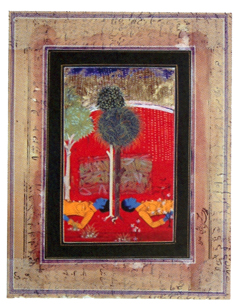
The practice of compassion means letting experience in. A Japanese poet, a woman named Izumi Shikibu who lived in the tenth century, wrote: “Watching the moon at dawn, solitary, mid-sky, I knew myself completely. No part left out.” When we can open to all parts of ourselves and to others in the world, something quite extraordinary happens. We begin to connect with one another.
One of the most memorable experiences in my meditation practice occurred quite a few years ago. I was doing a Zen sesshin—an intensive meditation retreat—with Joshu Sasaki Roshi, a very fierce old Zen master. Roshi worked with the koan method. A koan can be a question the master gives you that does not have a rational answer. One of the most famous koans is “What is the sound of one hand clapping?” The idea is to penetrate the essential meaning, and then to demonstrate your understanding in your response to the teacher.
In this sesshin, we all met with Roshi four times a day to give him the answer to our koan. Everything in the sesshin is very structured, building the tension and the charge in the mind. I would go in with my answers, but often Roshi would just say, “Oh, very stupid,” and then ring his bell to dismiss me. Once I gave my answer and he said, “Okay, but not Zen.” With each interview I was getting more and more uptight.
Finally, he had a little compassion for me and gave me an easier koan. He asked, “How do you manifest the Buddha while chanting a sutra?” A sutra is a Buddhist text, and we had been doing some chanting of sutras every day. Well, I thought I finally understood the koan: I would simply go in and chant a little of the sutra.
I don’t think Sasaki Roshi knew it at the time, but this koan touched some deep conditioning within me. It went back to my third grade singing teacher, whose advice to me was “Just mouth the words.” From then on, I had a strong inhibition about singing in public—yet here I was, having to perform in the pressure cooker of a sesshin.
Sesshin is held in silence except for interviews and chanting, and everything in the mind becomes hugely magnified. I was a total wreck. I rehearsed two lines of the sutra over and over, all the while getting more and more tense. When the bell rang for the interview, I went in, did my bows, started chanting—and completely messed up. I got all the words wrong, and the simple melody was nonexistent. I felt completely exposed, vulnerable, and raw.
In that moment, something quite special happened. Roshi looked at me, and with uncharacteristic tenderness said, “Oh . . . very good.” It was a moment of heart touching heart, still vivid after many years. In this powerful moment I saw that to receive compassion and love one must be willing to open to one’s vulnerability. Then we can connect heart to heart.
♦
From A Heart Full of Peace, © 2007 by Joseph Goldstein. Reprinted with permission of Wisdom Publications, wisdompubs.org.
Thank you for subscribing to Tricycle! As a nonprofit, we depend on readers like you to keep Buddhist teachings and practices widely available.